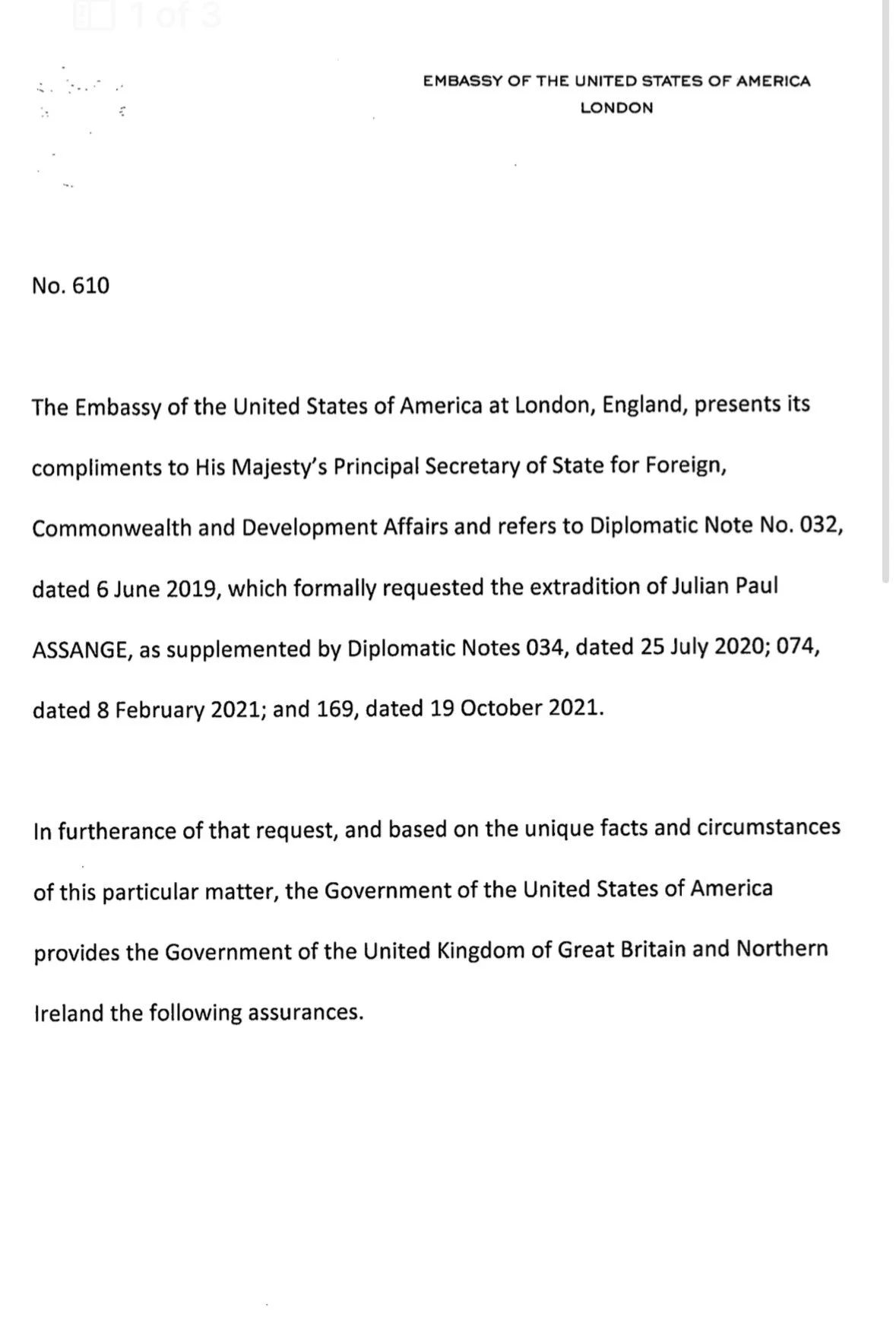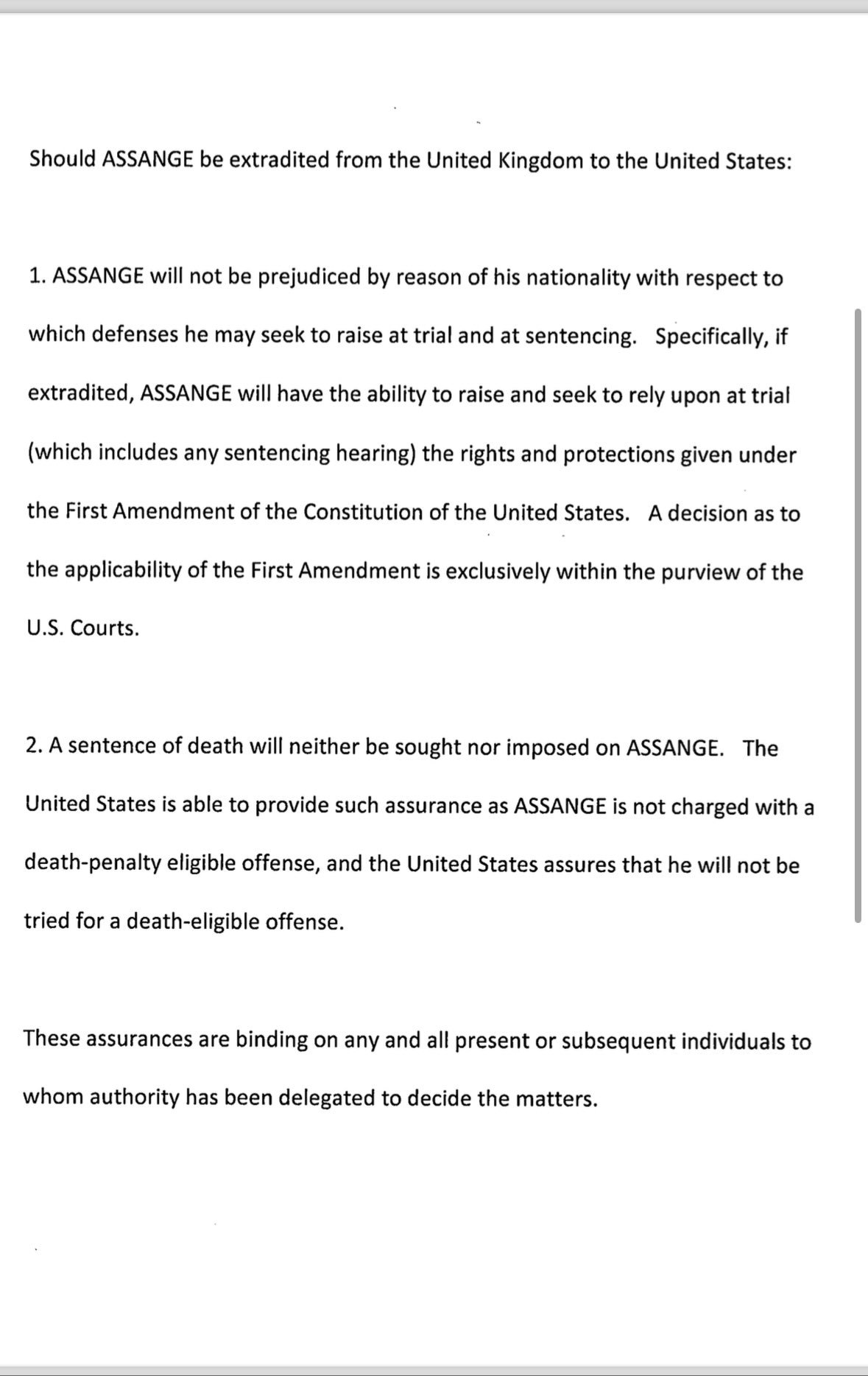US issues assurances in Assange case
At the end of March, the High Court in London ruled that Julian Assange's extradition could go ahead pending the US providing assurances on the death penalty and the WikiLeaks Publisher being able to avail himself of his free speech rights under the First Amendment. As we've pointed out several times before, the US prosecution of Assange is unprecedented and has potentially dire consequences for press freedoms and accountability fo state crimes.
The High Court also ruled that whether those assurances would be acceptable is set to be decided at a separate hearing on 20 May.
The US embassy in London has now provided those assurances to the High Court. The assurance that Assange would not face the death penalty in the United States is a standard formulation and very likely to be accepted by the Court. The First Amendment assurance is more problematic.
Statements provided by US prosecutors during the extradition hearings indicated that, as a foreign national operating abroad, Assange would not be entitled to the same freedom of expression rights as a US citizen. This also means that he would not have the same protections as someone facing prosecution in the UK, where Article 10 of the European Convention on Human Rights provides similar (though lesser) protections.
The assurance provided by the US on this point is far from watertight. In effect it says that Julian Assange would be entitled only to make the argument at trial that the First Amendment should apply to him:
"Assange will have the ability to raise and seek to rely on at trial... the rights and protections given under the First Amendment to the Constition of the United States."
In this situation, the presiding judge could of course decided to reject such an application. Indeed, there is reason to expect that a US federal judge might well decide that Assange is not entitled to rely on the First Amendment.
It remains to be seen whether the High Court will find this assurance acceptable as, on the face of it, it appears to fall short of the stated requirements. If the assurances are judged not to satisfy the High Court's concerns, then the case will proceed to another round of appeals.
In the meantime, of course, President Biden has told the media that the administration is "considering" dropping the charges entirely. Australia's Parliament has formally called for charges to be dropped and Assange to be able to return home.
Independent Australian MP Andrew Wilkie, a long standing supporter of Assange, alluded to this in his response to the assurances:
“If the US can’t guarantee that Mr Assange will unequivocally be able to rely on the free speech protection under the First Amendment, then the United Kingdom High Court of Justice must allow Mr Assange to appeal his extradition. Even better, the US can come to a diplomatic solution and drop the prosecution of Mr Assange to allow him to return to Australia.”


